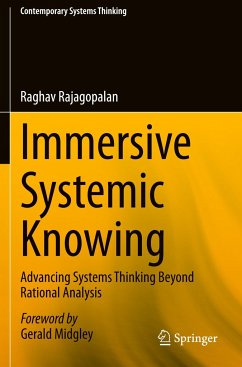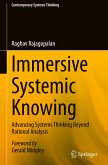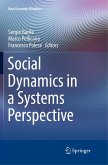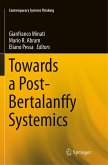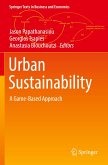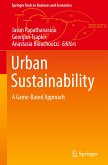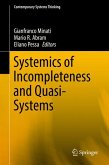This book advances systems thinking by introducing a new philosophy of systemic knowing. It argues that there are inescapable limits to rational understanding. Humankind has always depended on extended ways of knowing to complement the rational-analytic approach. The book establishes that the application of such methods is fundamental to systemic practice.
The author advocates embracing two modes of consciousness: intentionality, which Western philosophy has long recognized, and non-intentional awareness, which Eastern philosophy additionally highlights. The simultaneity of these two modes of consciousness, and the variety of knowings they spawn are harnessed for a more holistic, systemic knowing.
Four practices from fields related to systems thinking are examined: two contemporary action research methodologies from the US and the UK; the Sumedhian (Indian) approach to inquiry about processes within groups; and a technique of group psychotherapy originating in Eastern Europe. Each of these systematically harnesses knowing using both modes of consciousness. Therefore, the author insists, such approaches must be included in systemic practice, in purposeful and methodical juxtaposition to rational-analytic ways. The book provides examples and guidelines for deployment.
"All researchers and practitioners of systems thinking and action research must read this book...Raghav has craftfully blended Eastern and Western wisdom. He uses his immersion into Eastern ways of knowing practically, to elaborate the systems philosophy in rich detail. He has incorporated, from cooperative inquiry as action research, the idea of four ways of knowing: practical, propositional, presentational and experiential, to bolster the foundations of systems thinking" SHANKAR SANKARAN, Professor, University of Technology Sydney, Australia; President International Society of Systems Sciences (ISSS) 2019-2020
"This is a book with the potential to stimulate the emergence of a new paradigm. Raghav shows that systems thinking can transcend rational analysis and incorporate other ways of knowing, such as arts-based methods... also, rather than be overly preoccupied with striving for change, there is value in simply abiding, which comes with a deep appreciation of the ecological relationships we are part of. It's not that rational analysis is wrong - it's that it is only part of a genuinely transformative practice". GERALD MIDGLEY, Co-Director, Centre for Systems Studies, University of Hull; former President, ISSS (2013-14)
"Raghav Rajagopalan's writing on generating deep appreciation for the social and ecological interdependencies ties in closely with my own work. The philosophical ideas he develops contain the tracings and essential tones of Gregory Bateson's idea of "Mind" as a process of living complexities reaching well beyond the notion of the body. This book demonstrates outstanding erudition and deep compassion at the same time. It should delight the adventurous reader unafraid of big questions". NORA BATESON, President of the International Bateson Institute
The author advocates embracing two modes of consciousness: intentionality, which Western philosophy has long recognized, and non-intentional awareness, which Eastern philosophy additionally highlights. The simultaneity of these two modes of consciousness, and the variety of knowings they spawn are harnessed for a more holistic, systemic knowing.
Four practices from fields related to systems thinking are examined: two contemporary action research methodologies from the US and the UK; the Sumedhian (Indian) approach to inquiry about processes within groups; and a technique of group psychotherapy originating in Eastern Europe. Each of these systematically harnesses knowing using both modes of consciousness. Therefore, the author insists, such approaches must be included in systemic practice, in purposeful and methodical juxtaposition to rational-analytic ways. The book provides examples and guidelines for deployment.
"All researchers and practitioners of systems thinking and action research must read this book...Raghav has craftfully blended Eastern and Western wisdom. He uses his immersion into Eastern ways of knowing practically, to elaborate the systems philosophy in rich detail. He has incorporated, from cooperative inquiry as action research, the idea of four ways of knowing: practical, propositional, presentational and experiential, to bolster the foundations of systems thinking" SHANKAR SANKARAN, Professor, University of Technology Sydney, Australia; President International Society of Systems Sciences (ISSS) 2019-2020
"This is a book with the potential to stimulate the emergence of a new paradigm. Raghav shows that systems thinking can transcend rational analysis and incorporate other ways of knowing, such as arts-based methods... also, rather than be overly preoccupied with striving for change, there is value in simply abiding, which comes with a deep appreciation of the ecological relationships we are part of. It's not that rational analysis is wrong - it's that it is only part of a genuinely transformative practice". GERALD MIDGLEY, Co-Director, Centre for Systems Studies, University of Hull; former President, ISSS (2013-14)
"Raghav Rajagopalan's writing on generating deep appreciation for the social and ecological interdependencies ties in closely with my own work. The philosophical ideas he develops contain the tracings and essential tones of Gregory Bateson's idea of "Mind" as a process of living complexities reaching well beyond the notion of the body. This book demonstrates outstanding erudition and deep compassion at the same time. It should delight the adventurous reader unafraid of big questions". NORA BATESON, President of the International Bateson Institute

